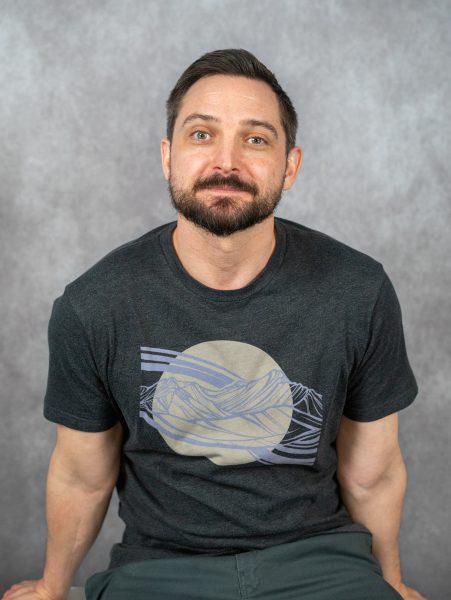The announcement that online instruction will continue into the Fall 2021 semester on April 8 evoked another round of mixed reactions by Santa Rosa Junior College faculty and students.
SRJC President Dr. Frank Chong’s Thursday email to faculty and students said despite Governor Newsom’s announcement that California might be reopened by June 15, there is no guarantee the state or county will reach the necessary criteria in time. Dr. Chong and his leadership team are closely adhering to the guidelines outlined by Cal/OSHA COVID-19 Industry Guidance: Institutions of Higher Education for reopening the campus safely, and will continue mostly remote education through 2021 for most classes. The decision was made at this time to allow appropriate time to plan an instructional schedule.
However, he plans to increase the number of partial and full-time in-person classes, mostly lab and skill-based, to begin the slow transition to fully reopening SRJC.
Faculty and students expressed a mixture of support and opposition to the decision.
“Most of my students who have communicated with me today have said they absolutely don’t understand. They feel that everyone will be vaccinated by August 2021, so there is no reason to make this decision,” said Communication Studies adjunct instructor Laura Ainsworth.
“It’s hurting the broader community in Sonoma County. It also goes against what the governor has requested and it goes against what local K-12 schools are doing, we should have been in a position of leadership as the main college in this area and instead we are the laggards dragging our feet to do what is right in this situation,” she said.
“If our community surrounding the college is reopening and renormalizing, then I think it is doing ourselves a disservice to not reopen,” said one instructor who opted to remain anonymous.
The expansion of in-person classes is a welcome relief for instructors who teach skill-based classes. Leslie McCauley, department chair of theatre and fashion, decided to suspend all theatre production for the Fall semester to teach more skill-based classes like musical theatre techniques.
McCauley said in-person classes will allow theatre students to get acquainted with the remodeled Burbank Auditorium, since COVID-19 restrictions started a week after it was opened to them. She realized she needed to get students in Burbank after seeing how thrilled they were during the few face-to-face meetings they had this semester.
“Actors are so hungry to be in each other’s company, because theater is live,” she said. “Socially distanced or masked, the students just want to be there together, doing their scenes and monologues.”
Director of vocal music Jody Benecke expressed similar approval at opening theatres for students.
“It’s about making sure students still want to be music majors, and making sure there is still an industry for them to go into,” Benecke said.
She thinks students have been incredible with online performances, but the experience doesn’t compare to a symphony playing live in a concert hall.
Still, many instructors who will be teaching full-time online classes for another semester are daunted because they feel their educational tools are lacking.
Maria-Antonia Robertson, a mathematics instructor, said, “It is hard to maintain academic integrity of our testing due to increased difficulty in proctoring exams to prevent cheating.”
She is also concerned with keeping students engaged with class due to increased distractions at home or difficulties staying connected on Zoom.
Sociology Instructor Dr. John A. Stover feels staying online will allow SRJC to teach more classes, but the magic of teaching is lost because he can’t witness students learn.
“There’s nothing super dynamic about teaching online. Everything is proscriptive, you know, mapped and planned out,” he said.
Stover said he’s reached his saturation point for online education and is anxious to get back to campus.
However, he thinks online education has benefits also, such as building communities and connections across campus.
“I’m much more integrated with my colleagues on the Santa Rosa campus,” he said.
Other instructors have mixed feelings with continuing online education. Communication Studies instructor Gina Stahl-Haven said she appreciates not having to commute while taking care of her newborn at home, but that doesn’t mean she spends less time running her classes.
“I’m putting in more hours grading, responding to emails and meeting in office hours than I have in 15 years of teaching,” Stahl-Haven said. “Of course, we are not paid for these extra hours, so it is wearing me down a bit.”
Stahl-Haven said students seem to prefer public speaking online because of reduced social stress, but she has a harder time supporting those who have anxiety from a distance.
“I’ve had to pivot as a professor to make sure I am reaching all my students and fulfilling all student learning outcomes despite the new context,” she said.
She also thinks that while teaching public speaking face-to-face is more effective, doing so too early would be countered by the need to wear masks.
“I really would love to be back face to face with students when they can actually see my face,” Stahl-Haven said.
Ellen Licht, an ESL instructor, said that even though more students are theoretically able to attend online, the department has lost “a great many” students in the past year, and she can only teach 70% of her material effectively because of the time needed to manage online resources.
Most instructors see SRJC’s commitment to online instruction as a balance between students’ educational needs and safety from the virus, but some think the choice is financial.
Geri Gorski, political science adjunct instructor, said, “I think the state of California would like to have community colleges permanently online. It represents huge savings to them.”
Gorski thinks that staying online means more adjunct faculty will be out of jobs.
Students’ reactions echoed what they felt last time they heard online education would be extended another semester.
Devon Hong said, “I think it’s silly for them to do remote while vaccine access is opening to all students starting April 15. Most if not all CSUs and UCs are doing in person with masks; we aren’t learning material, we’re learning how to pass doing online lectures.”
Mason McAllister, 22, said she felt reassured SRJC wasn’t rushing into in-person classes because the COVID-19 threat was still very real.
“Just because a portion of the population is fully vaccinated does not guarantee the safety of those who have yet to receive their first vaccination,” she said.
Alex Paule, 22, a kinesiology major, also feels it’s safer to remain online.
“Going back to class in person would provide a level of uncertainty about my health with my job, family, and friends so I believe it’s a smart choice to continue remote classes,” he said.
He agrees that learning online is a challenge but appreciates the extra time to juggle work and other responsibilities.
While Alysia Gomez, 21, a dental hygiene major, said imagining another virtual semester is draining.
“Learning through Zoom has been hard,” she said. “It’s easy to get quick answers through Google because students aren’t connected with the class to try. And turning off the Zoom camera to just sit on your phone is common as well.”
Peaceable Greenfield, a second year SRJC student, said, “I feel deterred. Distance learning has been incredibly difficult for me and continuing in such a manner makes it hard to feel any motivation or sense of accomplishment regarding my education.”
Sonoma State University is planning its own return to campus with 45-55% of class taught in-person, and increased housing to 1,950 students. Classes with 60 or more students are all online, according to a source familiar with the current plans.
Dr. Chong said the decision to stay online through 2021 is final even if conditions improve in California or Sonoma County.
His email included Remote resources for employees and students, Coronavirus information and updates, and FAQs for students in English and Spanish.
Additional reporting by Malcolm Bess, Jonathan Bigall, Aryk Copley, Hannah Cunha, Jessica Johnson, Tucker Lang, Emma Molloy, Jennifer Sawhney, Sophia Serrano, Cass Stewart, Fay Rasmuson and Jose Reyes.




